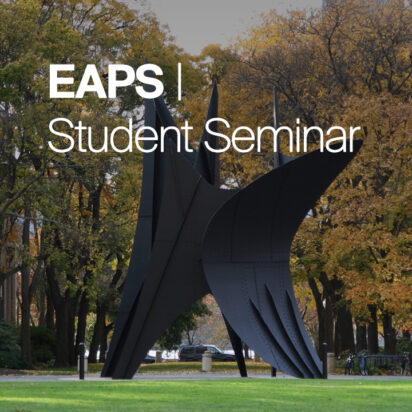
[ESAC Student Seminar] Robert van der Drift
Date: Thursday, March 28, 2024 Time: 12:00 - 1:00pm Location: 55-110 | MIT Campus, Cambridge, MATitle
Convective precipitation extremes that Clausius-Clapeyron cannot explain
Abstract
The Clausius-Clapeyron scaling rate predicts that the heaviest precipitation events, including those produced by convection (e.g. thunderstorms), will intensify with warming at a fractional rate of ~7% per kelvin. This theoretical scaling has been demonstrated in observational data, global climate model projections, and convection-resolving models (CRMs). However, some evidence suggests regional deviations from the Clausius-Clapeyron rate may exist. In this talk, I will use a CRM to explore two possible ways that convective precipitation extremes could scale at non-Clausius-Clapeyron rates.
In the first study, near-surface relative humidity (RH) was varied across simulations that were run to a state of statistical equilibrium. In these simulations, two mechanisms related RH to precipitation extremes, independent from the Clausius-Clapeyron theory. First, cloud buoyancy depended on near-surface RH, leading to changes in updraft speeds. Second, precipitation that falls out of the cloud re-evaporated proportional to 1-RH, leading to changes in precipitation efficiency.
In the second study, the surface was modified to temporarily inhibit convection, allowing convective instability to grow. Once uninhibited, the resulting “stored-energy convection” was much stronger than its equilibrium counterpart. Recent theoretical work has predicted a scaling rate for the updraft speeds of stored-energy convection. My CRM studies verified that these updrafts intensify with warming, but this intensification was not found to increase precipitation extremes beyond the Clausius-Clapeyron rate. Future work will explore why this is the case.
ESAC Student Seminar Series
A forum for students and postdocs to share recent research, hone presentation skills, and build community among peers, sponsored by the EAPS Student Advisory Committee. Open to current EAPS graduate and undergraduate students and postdocs. Typically hosted on Thursdays during the semester, including pizza lunch.
Contact: esac.officers@gmail.com
